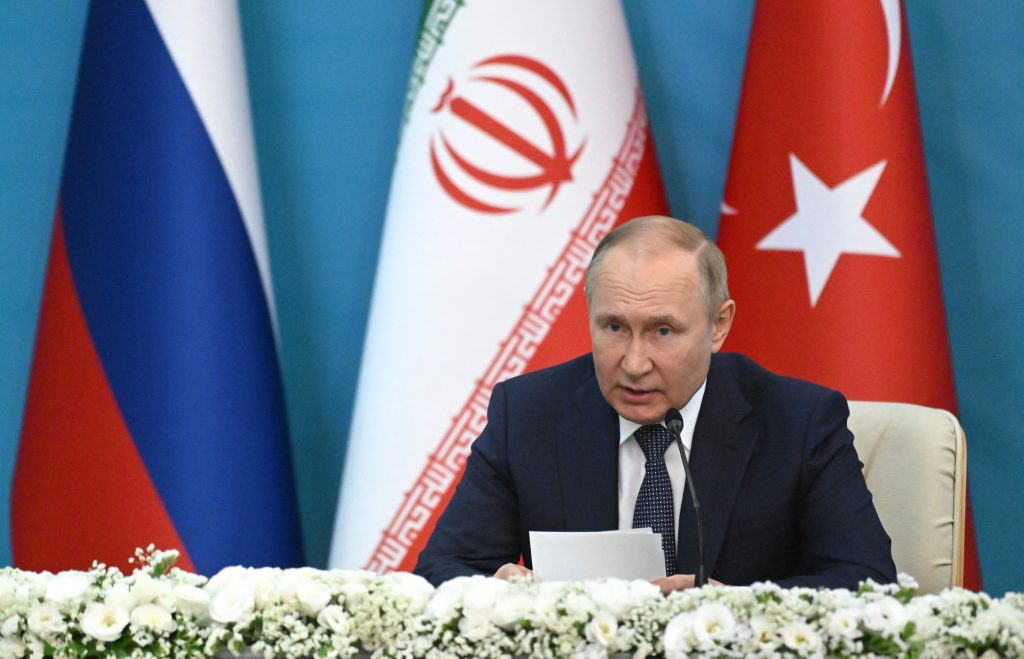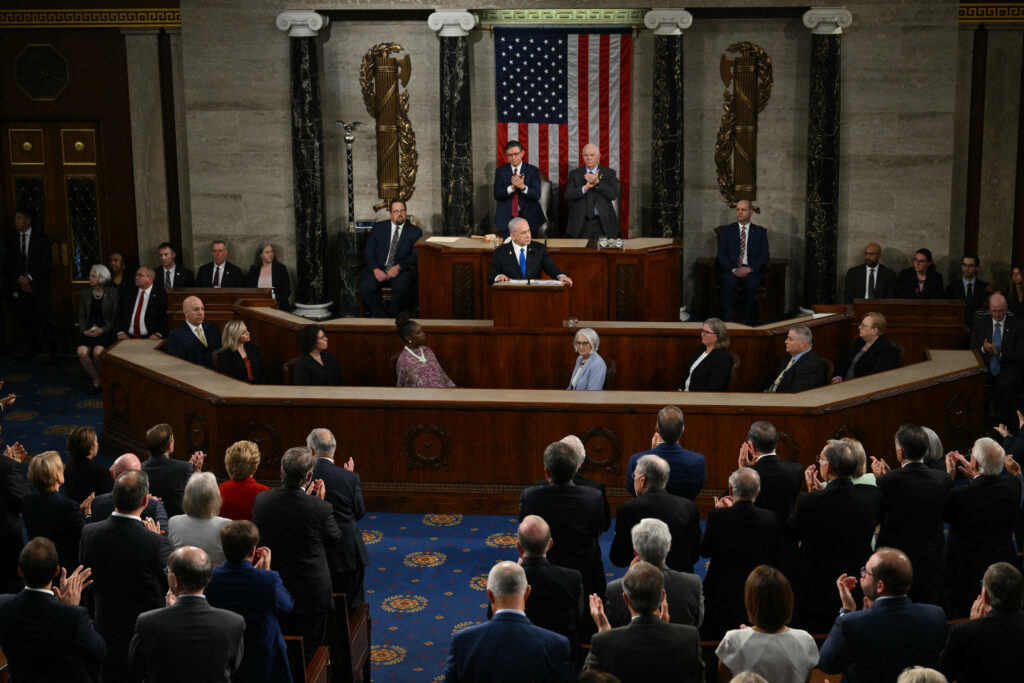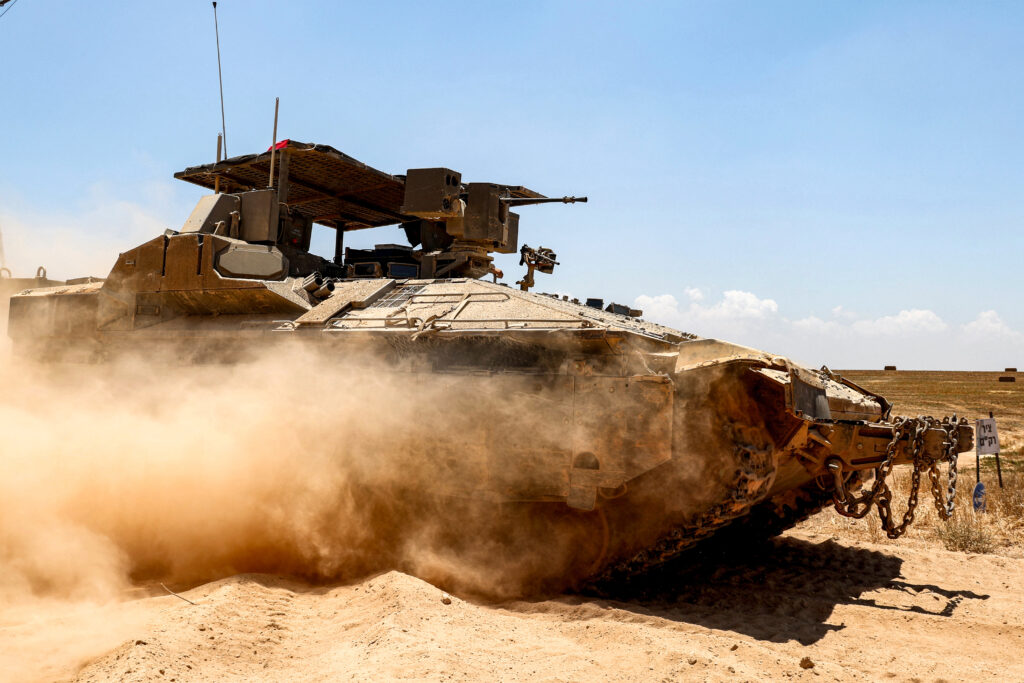Putin’s Alliance of the Isolated Brings New Unease to Iran-Gulf Ties
- - July 27, 2022

By Gyorgy Busztin, Visiting Research Professor, MEI-NUS
The ink had barely dried on a joint statement from the Jeddah security conference – attended by leaders from the United States, Saudi Arabia, Israel, and others – when Russian President Vladimir Putin touched down in Tehran for his own attempt to change the equation in the Middle East. Mr Putin’s trip was ostensibly meant to iron out differences between the three middle powers of the region, Russia, Turkey, and Iran, and foster an alliance of sorts as a counterweight to US regional hegemony.
But while Iran was willing to go along with Mr Putin’s plan, Turkey, a Nato member, had its own ideas: Ankara aimed to use the moment to clinch concessions that would further its regional ambitions, particularly a major military offensive in northern Syria to clear the Kurdish People’s Protection Units (YPG) from the area.
As expected, the motley collection of three neighbours with a history of centuries of war and contentious geopolitical issues between them could not find common ground. Turkish President Recep Tayyip Erdogan failed to gain endorsement from his “partners” for his avowed project of cleansing northern Syria of his Kurdish adversaries. Tehran covertly supports the Kurdistan Workers’ Party (PKK) – which Ankara views as the umbrella organisation for the YPK – while Russia doubled down on its support for the Assad regime (and, by extension, defended its gains in Syria). In the end, the whole affair boiled down to Mr Erdogan witnessing a Russian-Iranian exchange of vows from the sidelines. Nothing can capture the bizarre nature of this strange summit better than the photo of the three heads of states triumphantly raising their clinched hands to celebrate a non-accomplishment.
But what the Tehran summit failed to achieve in terms of trilateral harmony – Iranian Supreme Leader Ali Khamenei and Mr Putin denied Mr Erdogan approval for his plans in northern Syria – it achieved on a bilateral front. Ayatollah Khamenei wholeheartedly embraced the Russian line on Ukraine: It was all Nato’s fault. In addition to sharing identical views, the two sides unveiled ambitious plans for the future, with Russia promising colossal investments to revive Iran’s ailing hydrocarbon industry,[1] and their intention to cooperate on defence production. Amid a backdrop of reports that Iran would supply Russia with drones for its war in Ukraine – which Tehran continued to deny – Ayatollah Khamenei called for the US to leave the region. Mr Putin could not agree more.
A strategic alliance between Moscow and Tehran comes on the heels of what seems like the slow death of the effort to revive the Joint Comprehensive Plan of Action (JCPOA). While the US again faced a chorus of protest from its Gulf allies and Israel for its pursuit of a deal, Tehran moved so close to the critical enrichment threshold that it increasingly made no sense for it to seek a compromise.
Closing ranks with Moscow seemed a logical alternative[2]. Russia can hardly substitute for the West in terms of investment and technology, but with no end in sight to the sanctions imposed on Iran, this argument carries less and less weight in Tehran. Exploiting existing complementarities between the two – so their logic goes – adds weight to both in their isolation, and may, in fact, boost their respective war economies. That-once proud Russia is now begging for armaments from an international pariah like Iran is testimony to Moscow’s own isolation.
Where does the new emerging Moscow-Tehran alliance leave the Gulf countries? Their attempts to forge a coherent defence alliance have hardly gained ground: Statements released after the Jeddah summit made no mention of this. Instead, the Gulf states have satisfied themselves with seeking cover under the US defence umbrella, while arming themselves to the teeth with state-of-the art military hardware from suppliers only too happy to have their custom. The visit of United Arab Emirates President Mohammed bin Zayed to Paris is a case in point: It was aimed at forging defence cooperation, under the guise of closer ties in the energy sector. Closing ranks at the expense of national sovereignty by pooling resources and making unanimous decisions a la the EU/Nato is not on the cards for countries which are fiercely independent and, perhaps more pertinently, often at odds with each other. There is no better proof of this than the UAE’s overtures to Tehran as soon as President Joe Biden’s plane left the runway.[3]
However, one aspect of the Russo-Iranian axis merits a second look. The unequivocal commitment made by Ayatollah Khamenei in support of the Russian war on Ukraine is not a simple political statement, but also a religious edict. What the Supreme Leader of the Islamic Republic utters supposedly serves as guidance for the millions of Shia the world over that Iran claims it is natural leader of. To many in Iran, and the millions of Shia in Saudi Arabia’s eastern reaches, this will not mean much, preoccupied as they are with their own troubles. But it represents another line in the division between the two rival branches of Islam.
Meanwhile, the Gulf countries have not condemned Russia’s aggression, but they can be expected to fall closer in line with Washington in the wake of the US’ claimed re-commitment to their security. Gulf leaders will not have missed the message that if Russia and Iran can join hands over Ukraine, they can do the same elsewhere. Russia and Iran have already conducted joint naval exercises in the Indian Ocean, which China has also joined.[4] The spectre of anything similar in the Gulf may be alarming for the Gulf Cooperation Council, which is already unsettled by Iran’s efforts at upgrading its navy[5].
As he has done in Europe, then, Vladimir Putin has succeeded in hardening divisions in the Middle East. His new alliance of the isolated will only make the situation in the region more volatile.
About the Author
Dr Gyorgy Busztin is Visiting Research Professor at the Middle East Institute, NUS.
A career diplomat and an academic, he served, between 2001 and 2011, as Hungary’s ambassador to Indonesia and subsequently, Iran. In 2011, Dr Busztin was appointed deputy envoy of the United Nations in Iraq, responsible for the political, analytical, electoral and constitutional support components of the UN’s mission in Iraq. He served at the level of assistant secretary-general until October 2017.
End Notes
[1] To the tune of 40 billion USD
[2] Ali Vaez of Crisis Group called it an alliance of necessity in a tweet.
[3] Promising to reopen its embassy in Tehran closed in solidarity with KSA.
[4] Iran, Russia, China hold joint naval drill amid growing ties, Radio Free Europe, 21 January 2022
[5] Iran Navy unveils drone carrier, Tehran Times, 16 July 2022
More in This Series
More in This Series
- Jean-Loup Samaan
- - July 11, 2024
- Aisha Al-Sarihi, Ehsan Rasoulinezhad, Jinseok Sung
- - June 20, 2024








